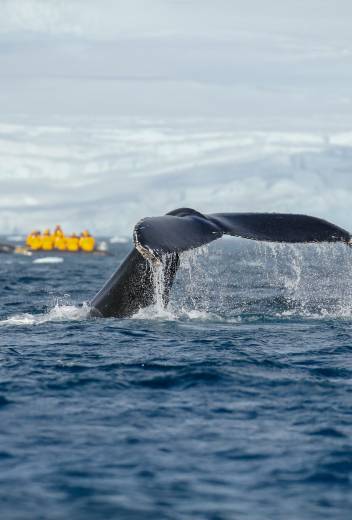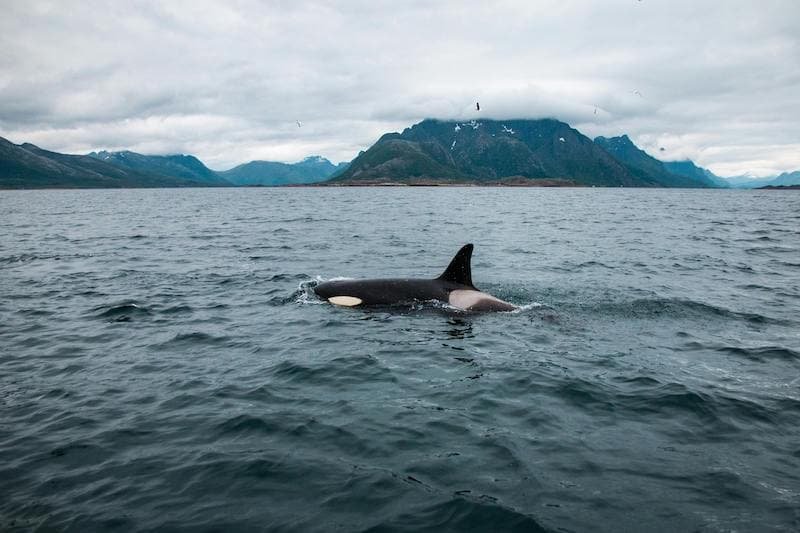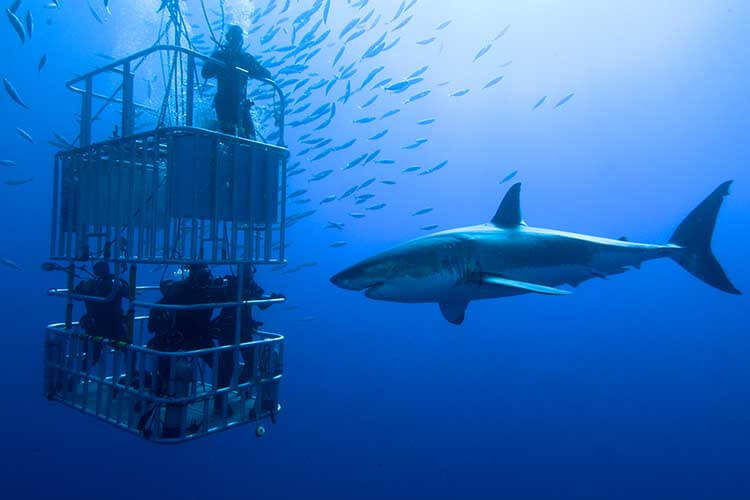Dive into Discovery: Unique Sea Adventures for Citizen Scientists

Are you ready to trade passive sightseeing for active participation in scientific discovery? Imagine yourself surrounded by towering icebergs in the Antarctic, the clear arctic waters teeming with life, or the vast expanse of the open ocean, each a world of unique beauty and fragile ecosystems begging to be understood and protected. Gone are the days of simply observing; now, you can actively contribute to marine research and conservation. At vistalocation.com, we’re thrilled to offer a range of extraordinary sea adventures that combine thrilling travel experiences with the opportunity to become a vital part of the scientific community. The rising interest in citizen science is transforming how we explore and understand our planet, and we invite you to dive in!
Section 1: Antarctic Whale Research Expedition (November-December)
Location: The Antarctic Peninsula, aboard the research vessel 'Ocean Endeavour'.
Focus: Immerse yourself in a 12-day scientific expedition focused on humpback whale population monitoring and behavior analysis. This adventure offers a front-row seat to the lives of these magnificent creatures while contributing directly to vital scientific research.
Experts: Our expedition is led by two distinguished figures: Dr. Ari Friedlaender, a leading whale biologist from the University of California, Santa Cruz, renowned for his expertise in whale behavior and ecology, and Sarah Thompson, an experienced expedition leader with extensive knowledge of the Antarctic environment.
Dr. Friedlaender emphasizes the importance of citizen science, stating, "Citizen scientists play a crucial role in expanding our understanding of whale populations and their response to environmental changes. Their dedication and enthusiasm are invaluable to our research efforts."
Itinerary:
Day 1: Your journey begins in Ushuaia, Argentina, the southernmost city in the world. Embarkation on the Ocean Endeavour commences in the afternoon, followed by an evening briefing covering whale research protocols and essential safety procedures.
Days 2-10: Each day brings exciting whale-watching excursions in Zodiac boats, providing unparalleled opportunities to observe humpback whales in their natural habitat. Participants will utilize high-powered Leica binoculars (available for purchase on vistalocation.com) to identify individual whales based on their unique fluke patterns, meticulously record their behavior, and collect valuable data on their distribution. Additionally, participants will have the chance to deploy hydrophones (details and link to purchase on vistalocation.com) to capture the mesmerizing sounds of whale songs. Evenings are dedicated to informative lectures by Dr. Friedlaender, delving into the intricacies of whale biology and the critical importance of conservation efforts.
You can listen to a sample of whale song below:
[Technical Quality: underwater audio file of whale song to be embedded in post]
Day 11: Venture ashore to visit a bustling penguin colony and participate in a citizen science project aimed at counting penguin nests and assessing breeding success, in collaboration with a researcher from the Antarctic Research Trust.
Day 12: Disembarkation takes place back in Ushuaia. A final debriefing session will be held, where preliminary research findings are presented and discussed, allowing participants to reflect on their contributions and the impact of the expedition.
Skills Learned: Whale identification techniques, data collection methodologies, hydrophone deployment procedures, and a comprehensive understanding of whale behavior patterns.
Equipment: To make the most of your Antarctic adventure, we recommend purchasing high-powered binoculars (Leica recommended), waterproof field notebooks, warm waterproof clothing (links to options on vistalocation.com), and a quality camera with a telephoto lens (Sony Alpha series, link to purchase).
Ethical Considerations: It is paramount to maintain a safe and respectful distance from whales at all times, avoiding any disturbance to their natural behavior. Comprehensive guidelines will be provided by Dr. Friedlaender and strictly adhered to by all participants to ensure the well-being of these magnificent creatures.
Section 2: Free Diving with Orcas in Norway (February)
Location: Northern Norway, near Tromsø, during the peak herring migration season. This is a prime location to witness orcas feeding in their natural environment.
Focus: Learn breath-hold techniques and ethically observe orcas in their natural habitat. This adventure combines adrenaline-pumping freediving with responsible wildlife observation.
Experts: Your guides for this unforgettable experience are Kirk Krack, a world-record freediver and safety expert, renowned for his expertise in breath-hold techniques and underwater safety, and Dr. Eve Jourdain, an orca researcher specializing in communication and social behavior.
Kirk Krack's innovative teaching methods prioritize safety and empower participants to confidently explore the underwater world. Dr. Jourdain's research provides invaluable insights into orca communication and social structures.
Itinerary:
Day 1: Arrive in Tromsø, the gateway to the Arctic. Participate in an introductory workshop on freediving safety and techniques led by Kirk Krack, focusing on essential skills for safe and enjoyable underwater exploration.

Days 2-6: Embark on daily freediving sessions in the breathtaking Norwegian fjords. Learn and practice essential breath-hold techniques, including static apnea and dynamic apnea, under the expert guidance of Kirk Krack. Then, experience the thrill of freediving alongside orcas, observing their behavior and communication patterns under the watchful supervision of Kirk Krack and Dr. Jourdain.
[Technical Quality: Video showing proper freediving technique]
Day 7: Immerse yourself in the local culture with a visit to a traditional fishing village, where you'll learn about the cultural significance of herring and orcas to the region. Participate in a presentation on orca conservation challenges and potential solutions, gaining a deeper understanding of the threats facing these magnificent creatures and the importance of conservation efforts.
Skills Learned: Essential breath-hold techniques, underwater navigation skills, orca behavior observation methods, and ethical interaction protocols.
Equipment: A high-quality freediving wetsuit (7mm Omer or equivalent, link to purchase on vistalocation.com), freediving fins (Mares Razor Pro, link to purchase), a low-volume mask, and an underwater camera with housing (GoPro Hero series, link to purchase) are highly recommended for this adventure.
Ethical Considerations: Respecting orcas' space is paramount. Any attempts to touch or feed them are strictly prohibited. Adherence to strict guidelines provided by Dr. Jourdain ensures minimal disturbance to these sensitive creatures.
Section 3: Great White Shark Cage Diving and Research in Guadalupe Island (September-October)
Location: Guadalupe Island, Mexico, renowned for its crystal-clear waters and abundant great white shark population. This remote island provides an ideal setting for studying these apex predators.
Focus: Cage dive with great white sharks and participate in shark tagging and data collection efforts alongside experienced marine biologists. This adventure combines the thrill of encountering these magnificent creatures with valuable scientific contributions.
Experts: Leading this expedition is Dr. Mauricio Hoyos Padilla, a renowned shark biologist and conservationist, recognized for his expertise in great white shark behavior and ecology. Assisting him is Michelle Jewell, an experienced divemaster with extensive knowledge of the Guadalupe Island ecosystem.
Dr. Hoyos Padilla's research focuses on understanding shark movement patterns and behavior to inform effective conservation strategies. His dedication to shark conservation makes him a valuable resource for participants.
Itinerary:
Day 1: Arrive in San Diego, California, and enjoy an overnight stay, preparing for the adventure ahead.
Day 2: Embark on the dive vessel and begin the journey to Guadalupe Island (approximately 24 hours), enjoying onboard presentations and briefings.
Days 3-5: Engage in daily cage diving sessions, observing great white sharks in their natural habitat while learning about their behavior and ecology from Dr. Hoyos Padilla. Participants may have the opportunity to assist with shark tagging efforts (if conditions allow) and collect valuable data on shark size, sex, and location.

Day 6: Return to San Diego, reflecting on the incredible experience and the valuable contributions made to shark research. Participate in a final debriefing session to discuss shark research findings and conservation implications.
Skills Learned: Shark behavior observation techniques, shark tagging procedures (if applicable), data collection methods, and a comprehensive understanding of shark conservation issues.
Equipment: A thick wetsuit (7mm Henderson Thermoprene, link to purchase on vistalocation.com), a dive hood and gloves, an underwater camera with housing (SeaLife DC2000, link to purchase), and a dive computer are essential for a comfortable and safe experience.
Ethical Considerations: Respect for shark behavior is paramount. Any attempts to bait or harass them are strictly prohibited. Adherence to strict cage diving safety protocols ensures the safety of both participants and the sharks.
Conclusion
These extraordinary sea adventures offer a unique opportunity to not only witness the ocean's most fascinating creatures but also contribute directly to scientific knowledge and conservation efforts. By participating in these expeditions, you'll gain invaluable skills, expand your understanding of marine ecosystems, and become a vital part of the citizen science movement.
Ready to embark on the adventure of a lifetime? Book your spot through vistalocation.com and become a citizen scientist today!
Testimonial:
"I never thought I could contribute to real scientific research on my vacation. The Antarctic Whale Research Expedition was an incredible experience. I learned so much, met amazing people, and felt like I was making a real difference in protecting these magnificent animals." - Jane Doe, Previous Expedition Participant
Let's work together to protect our oceans for future generations. The time to act is now!